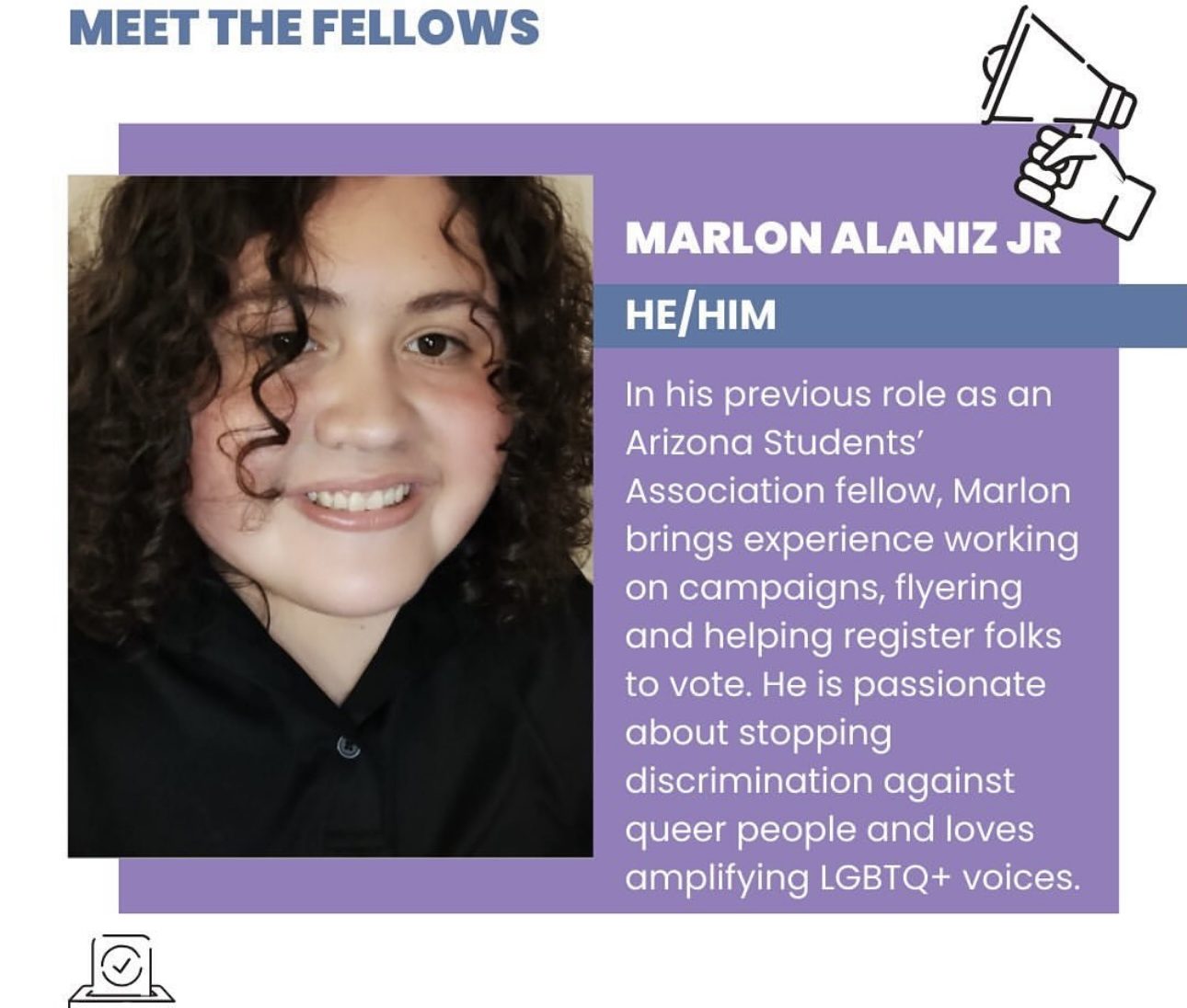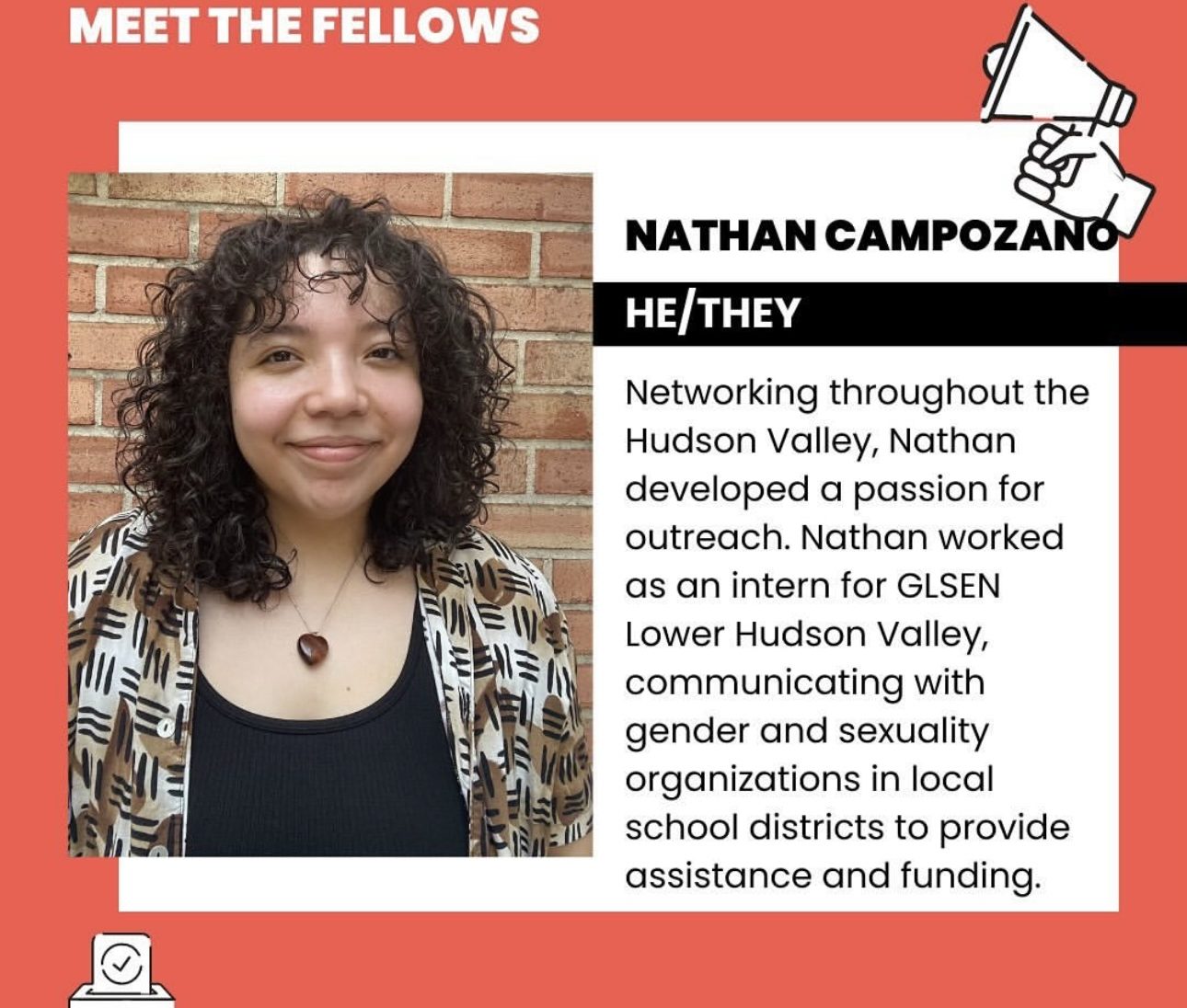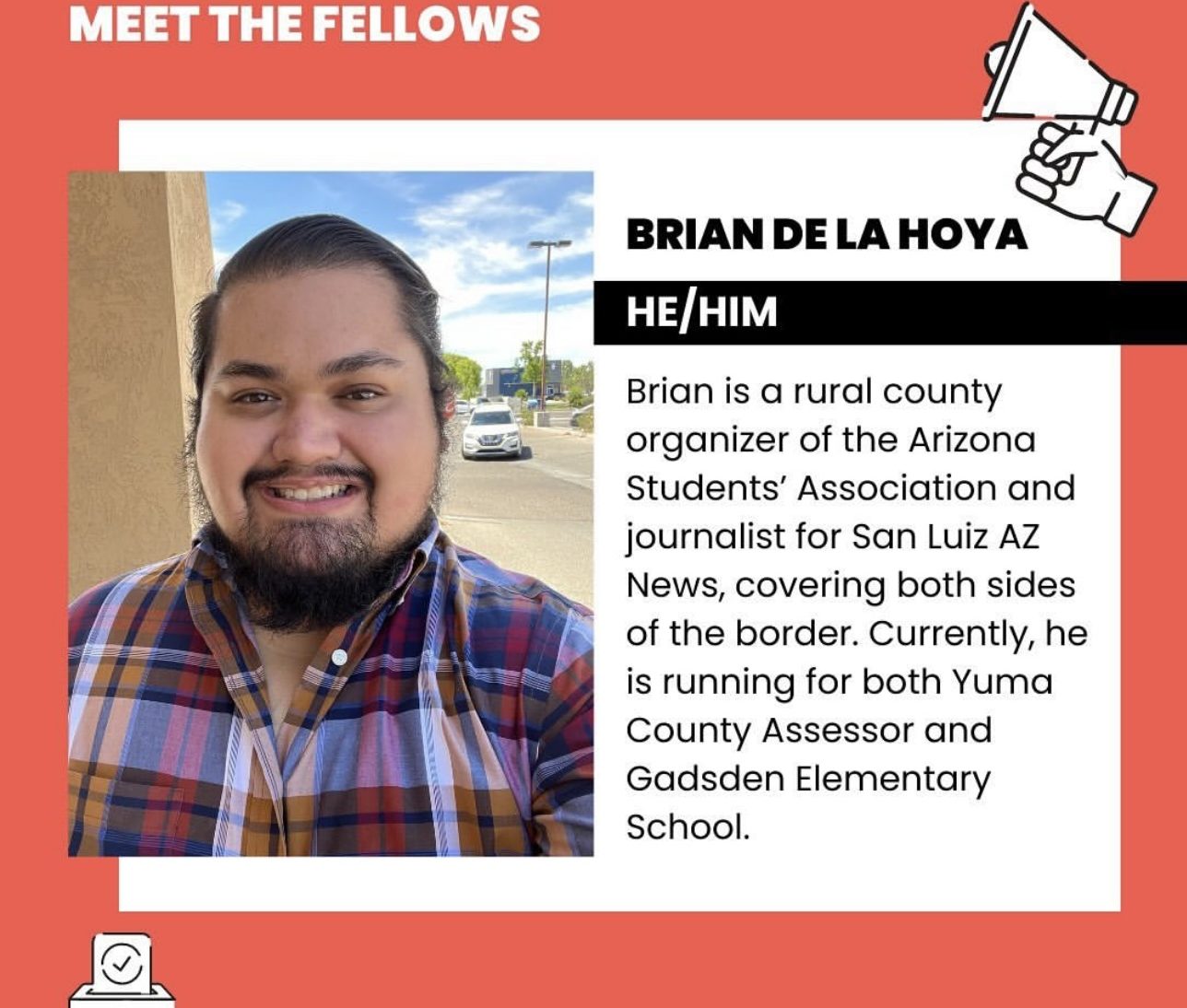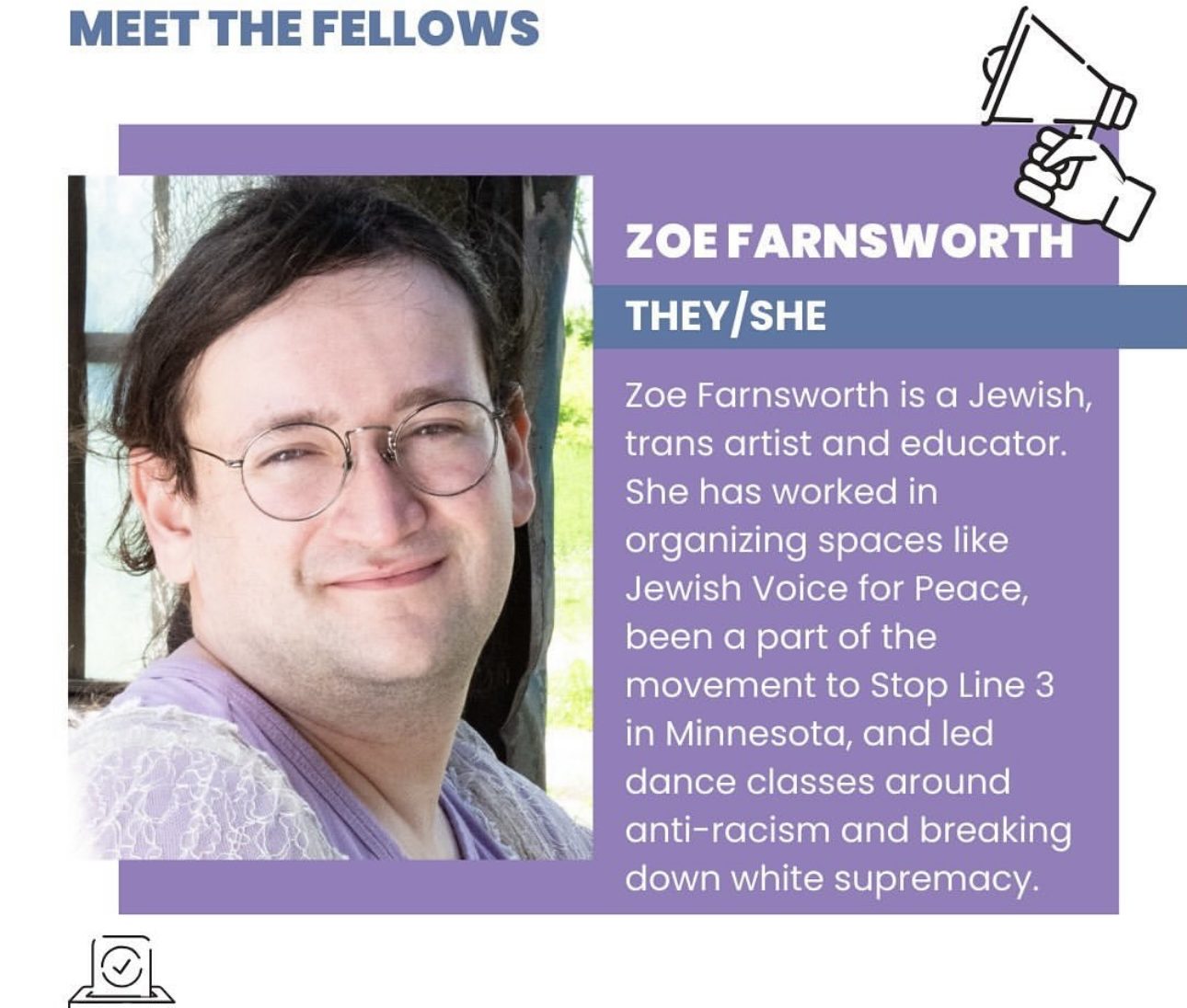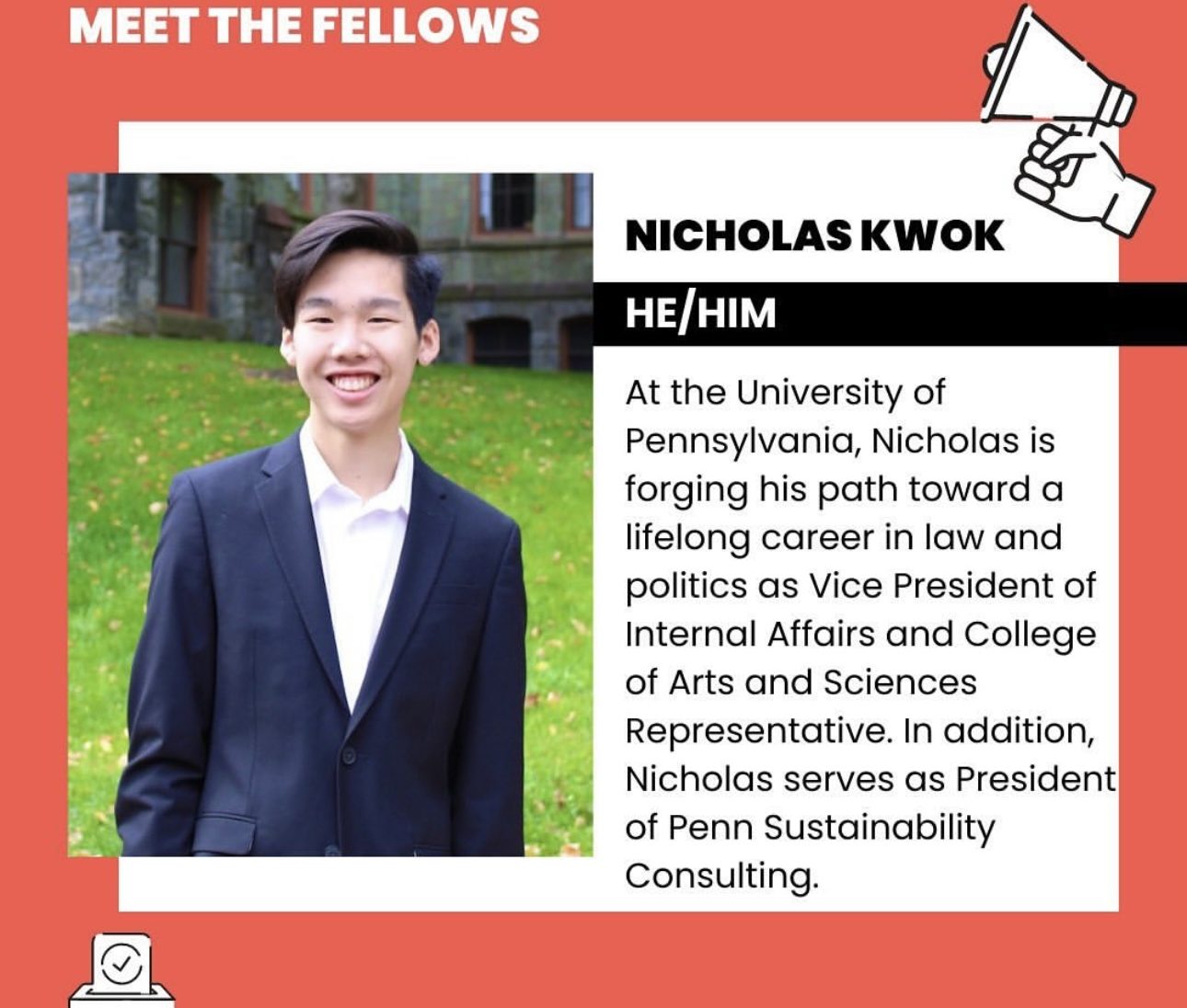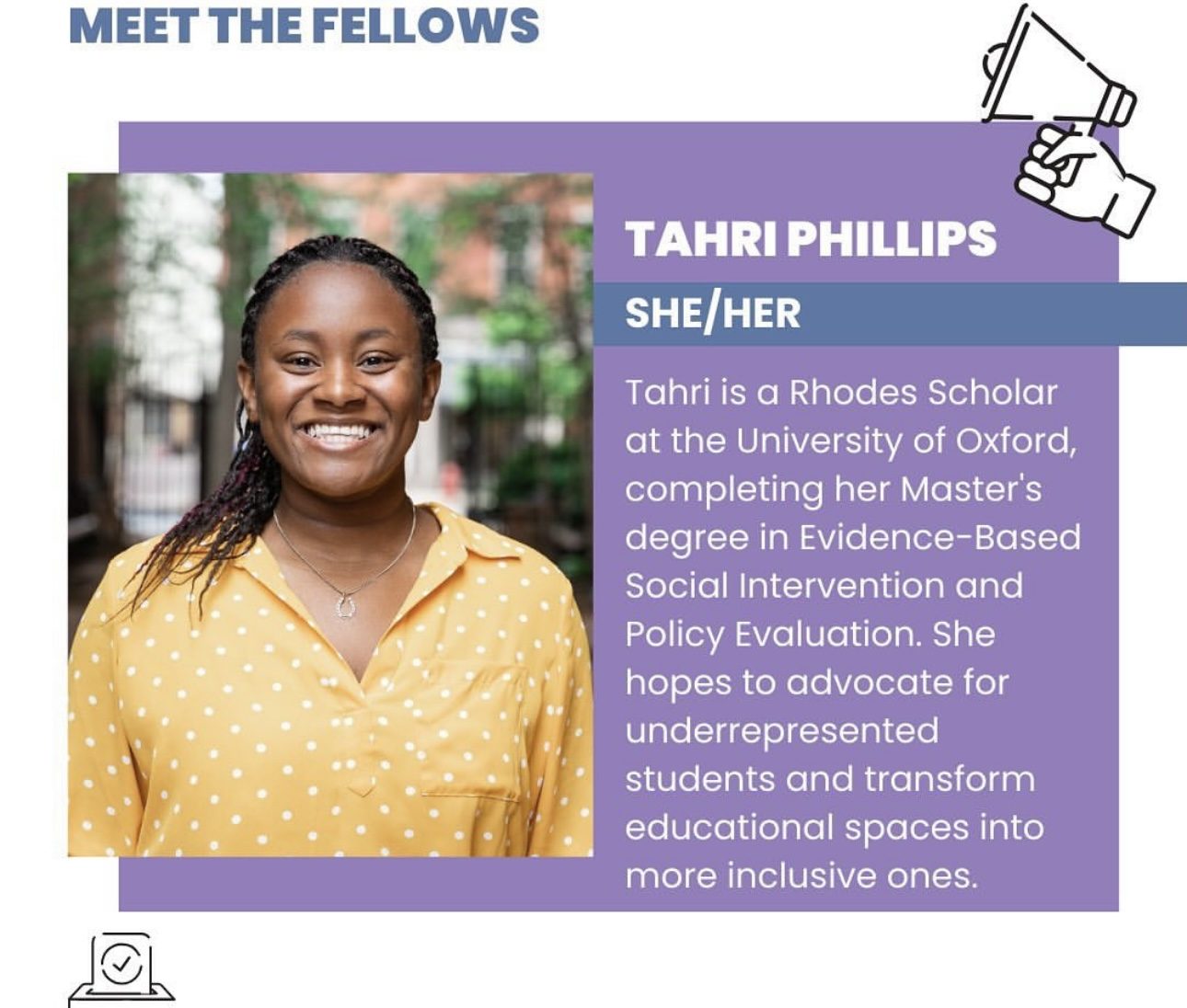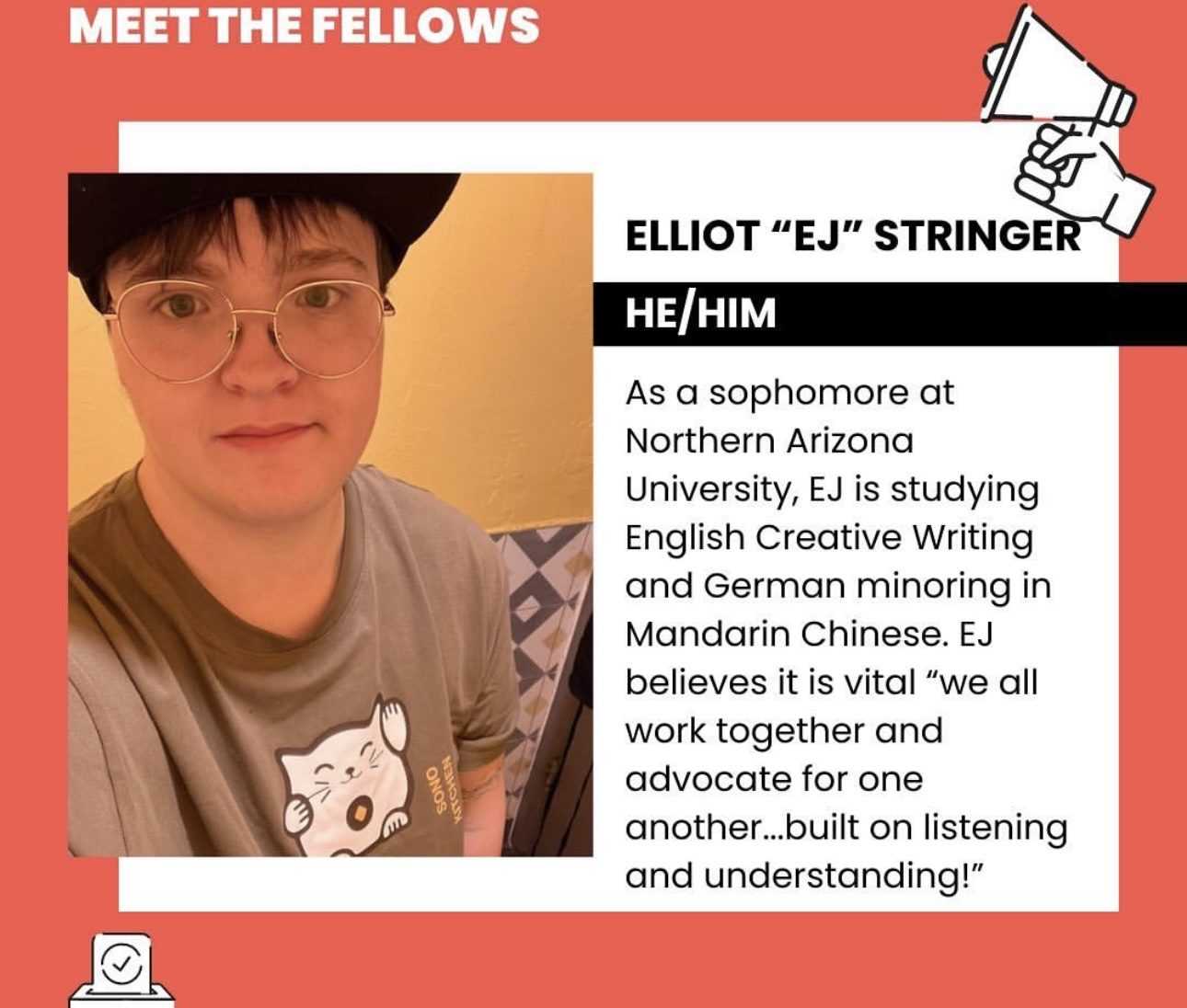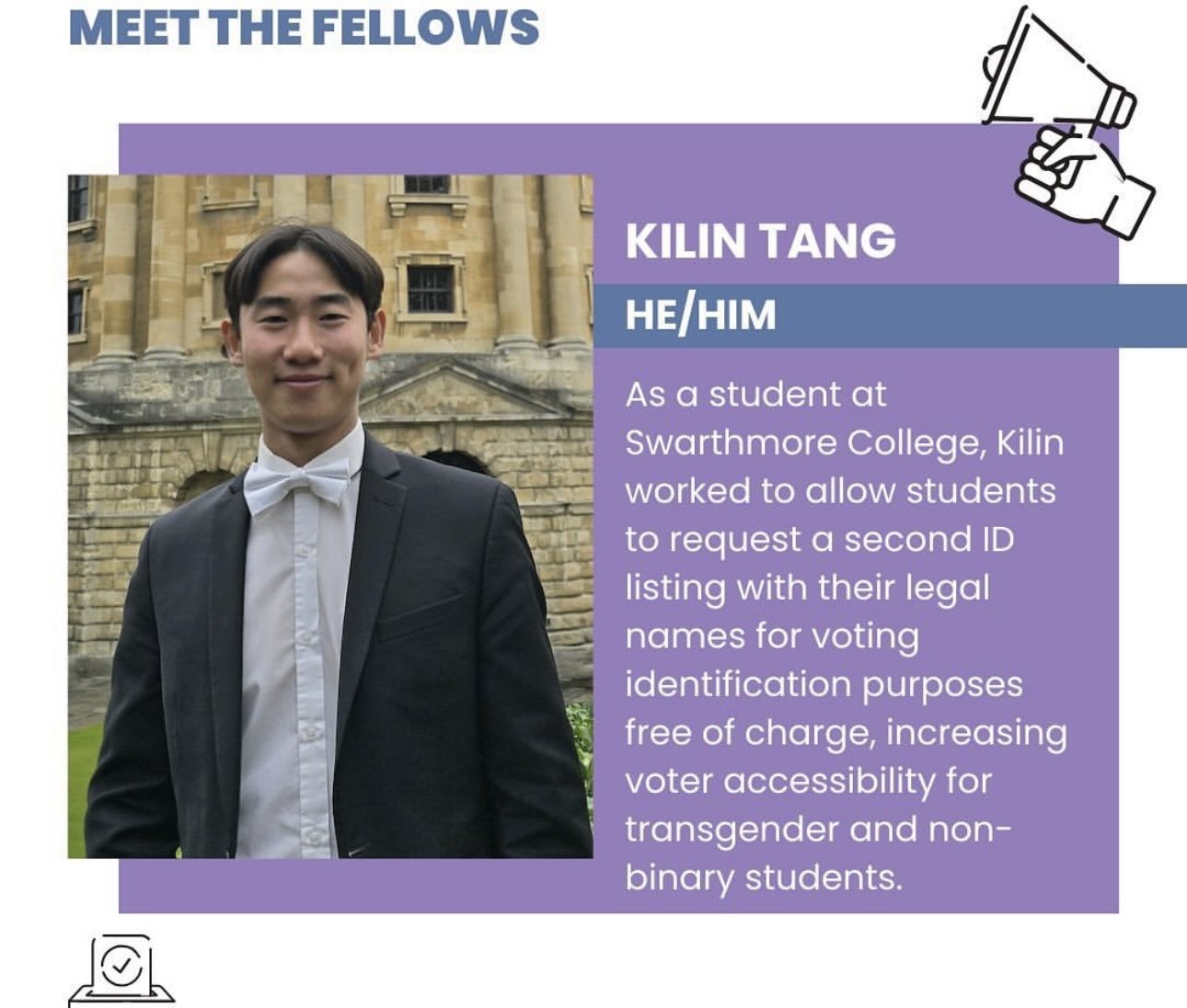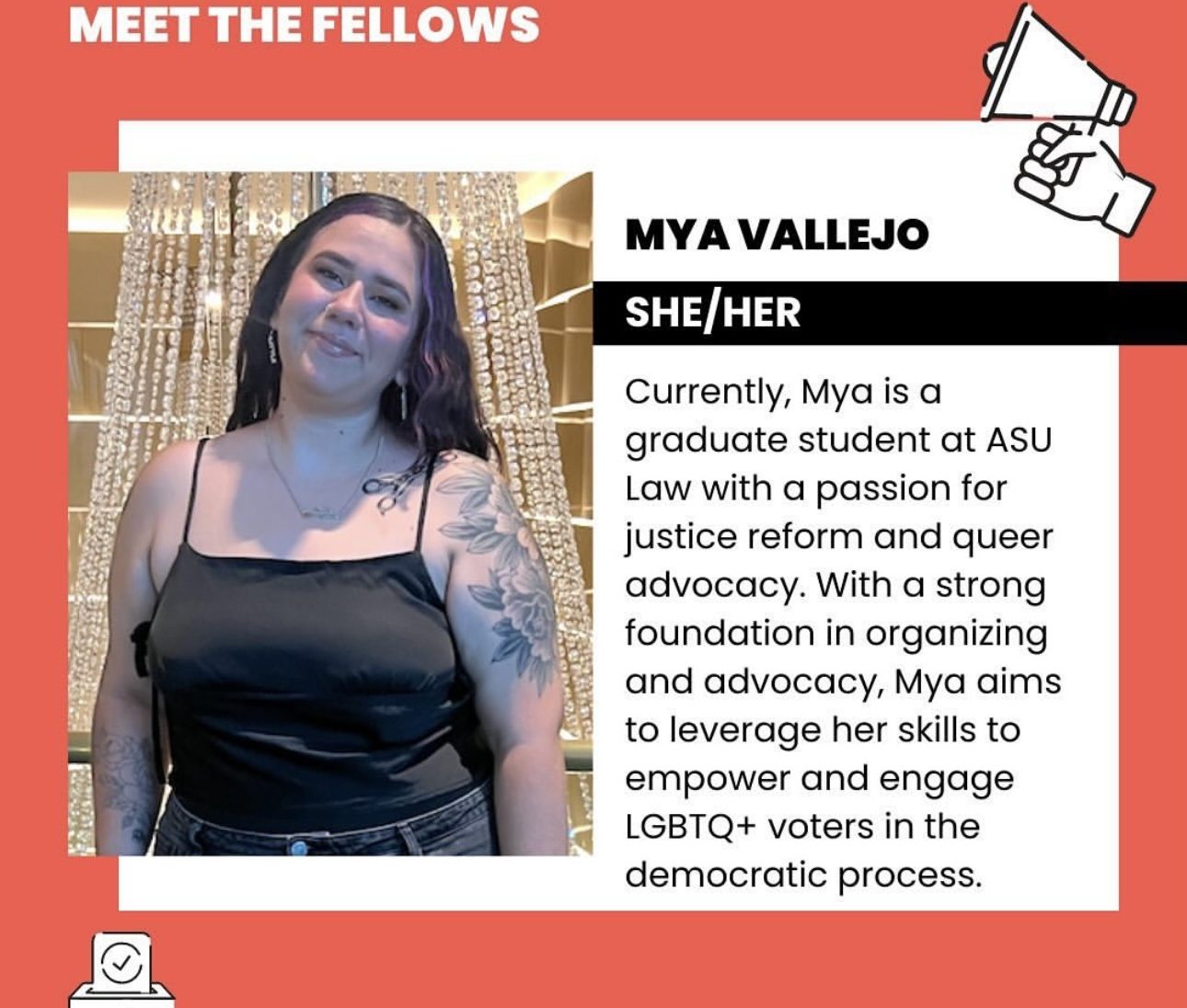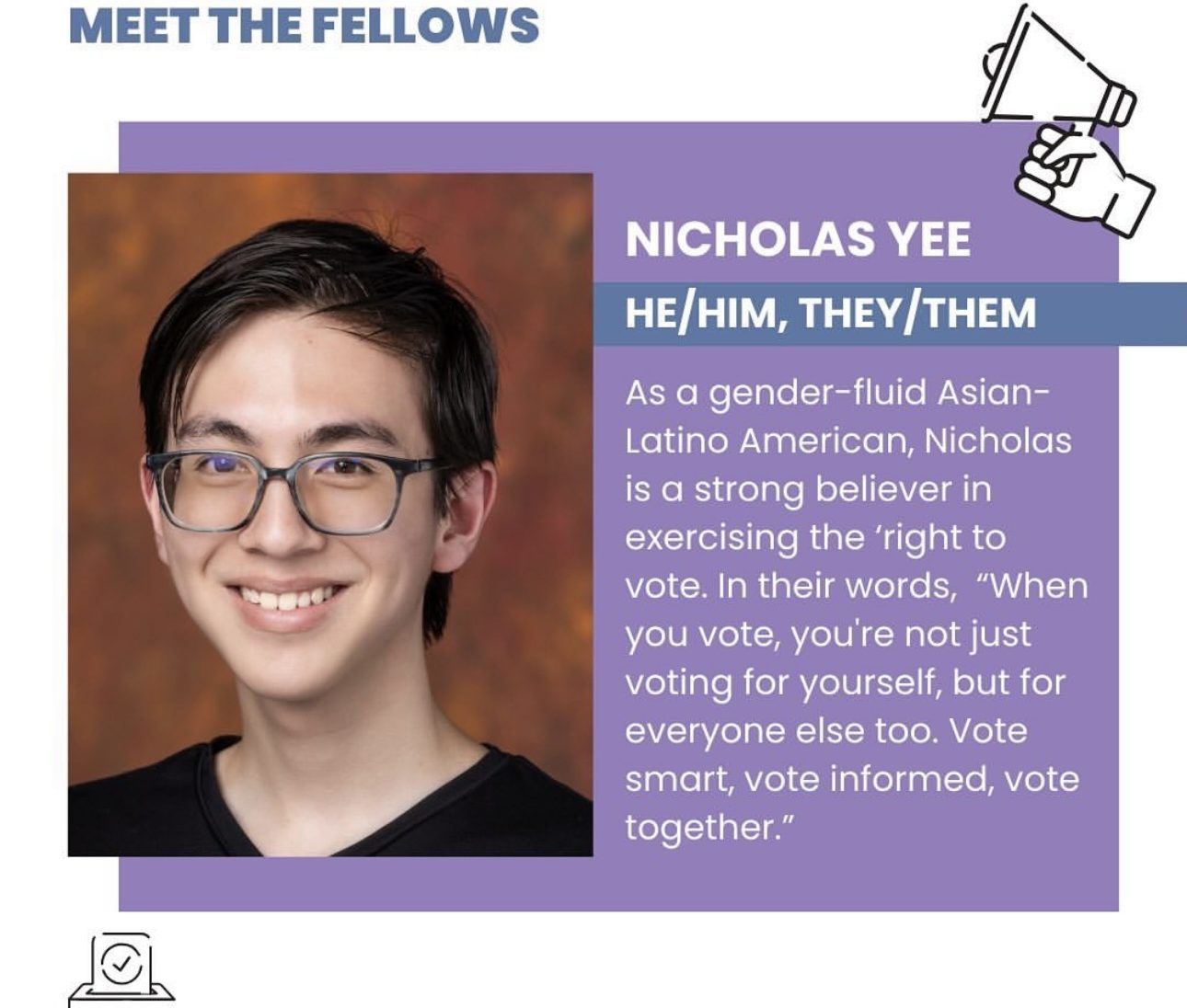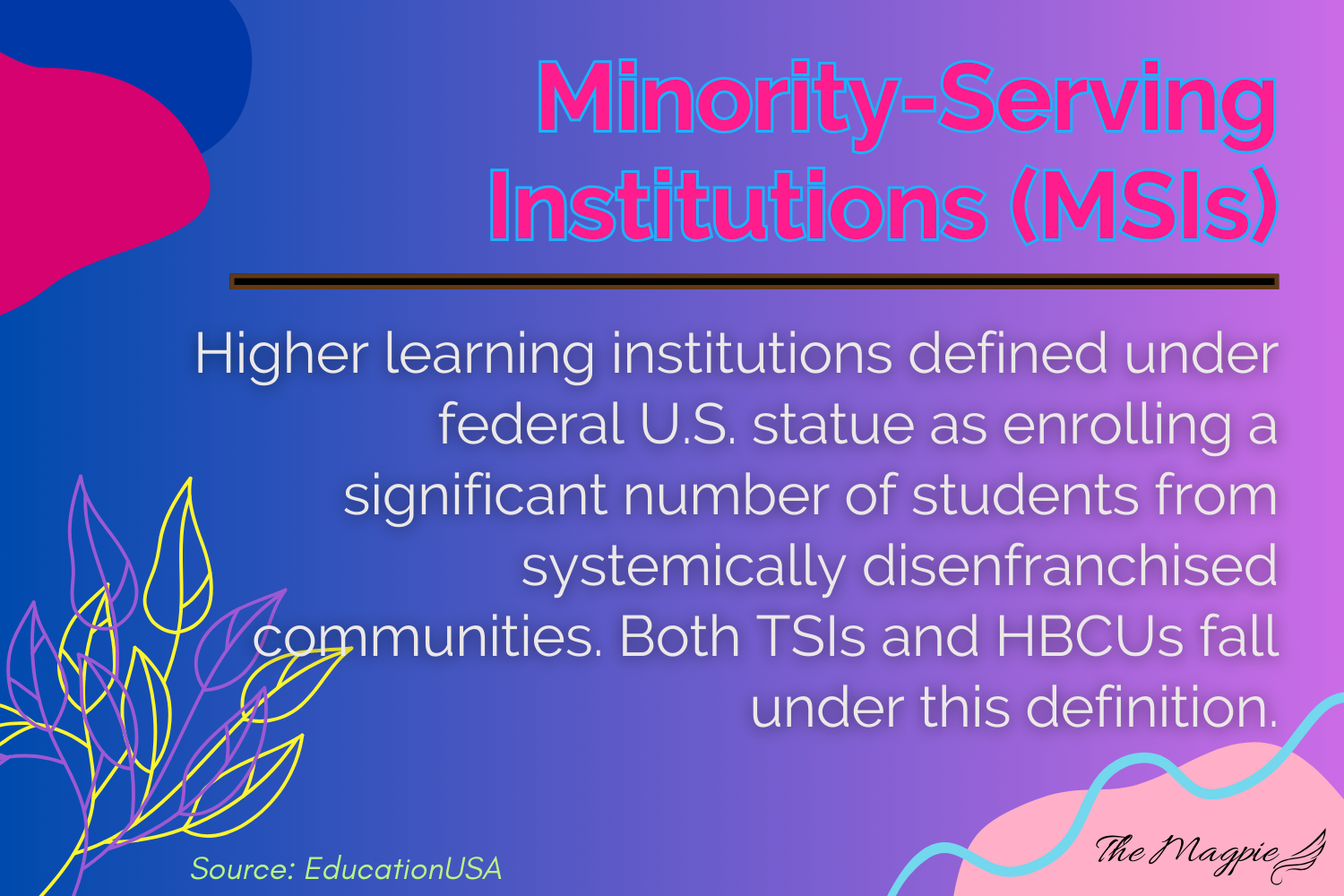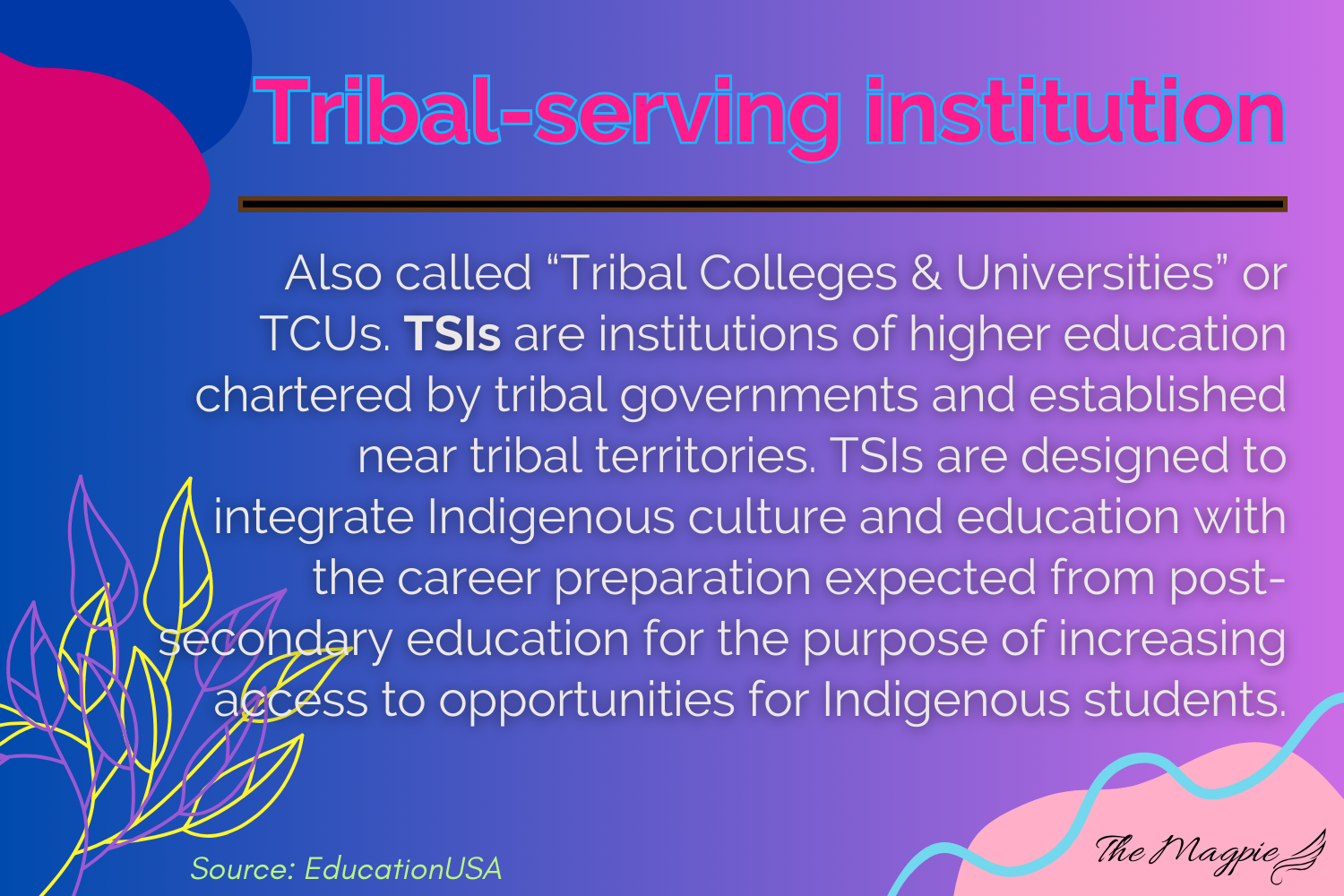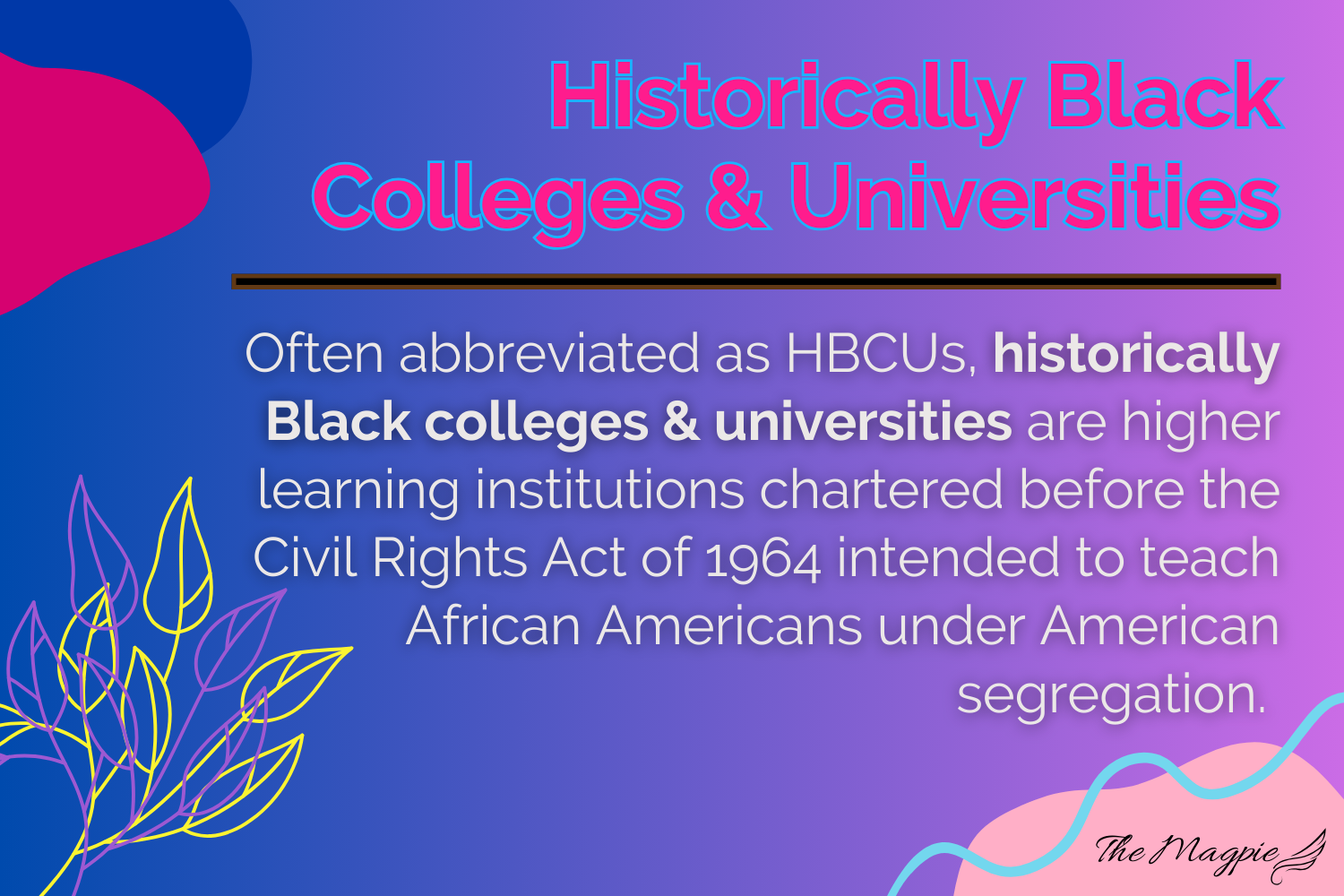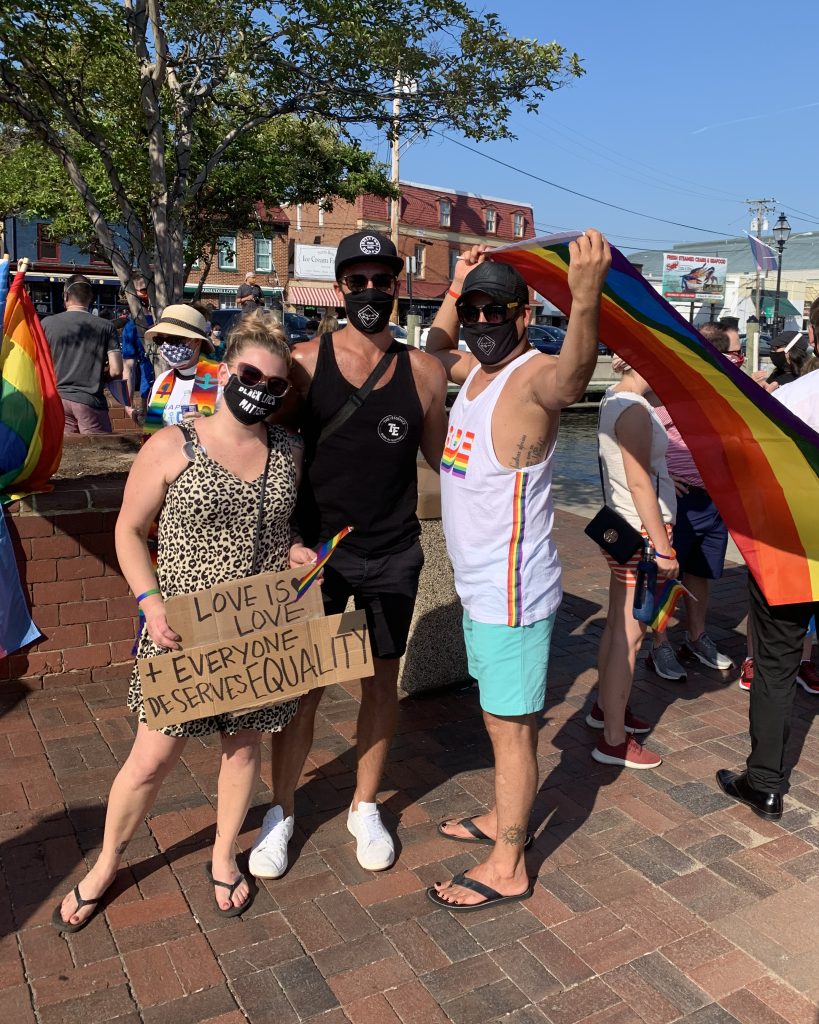
How LGBTQ+ Youth Build Collective Power: An Interview with the Founders of OutVote (Part 1)
Introduction by Emma Buchman, Magpie Editor
The Magpie prioritizes youth voices very intentionally: I’ve been a youth organizer, and I’ve worked with youth organizers for years. Despite how brilliant youth organizers can be (and they are brilliant), many youth-led organizations simply don’t have the bandwidth or support to run all of the programs they need to achieve their goals. Young organizers of color receive even less support because of discrimination in the nonprofit space, which often favors funding white-led organizations.
Knowing all of this, I want to ensure that The Magpie is a space that uplifts youth voices and supports youth initiatives. This is one of many reasons why I am really excited to share this latest interview with Ranen Miao and Isaac James, the co-founders of OutVote.
Speaking with Isaac and Ranen, their passion for this work is clear in their voices and their extensive knowledge of LGBTQ+ history and organizing. They seem to be taking all of the correct steps to ensure their success, and I’m sure the rest of the OutVote team is just the same.
OutVote’s work is an amazing example of why paying attention to the little details makes progress happen more effectively. It works to accomplish the seemingly impossible task of enfranchising marginalized voters in a way that creates lasting community bonds that go beyond the election before us. So far, it appears they are on the path to achieving that goal.
Their specific focus on enfranchising queer and trans youth on college campuses is not only brilliant strategy-wise – as a member of the LGBTQIA+ community myself, it gives me a sense of hope for LGBTQIA+ representation that had been waning in recent years.
With every passing election, the stakes for our country climb to even greater heights. My anxiety pattern probably resembles a cardiograph at this point, going up every two years with each election season. Honestly, knowing that OutVote is doing this work gives me tangible relief. Anyone in high school or college (or any age, really) who is interested in beginning your own project will get a jumpstart by learning from OutVote.
One last note before we get started: you may notice an *asterisk* after a few definitions around gender and sexuality. This is that asterisk: we made these definition cards as a way to educate folks and give readers a chance to potentially see themselves (on my own coming out journey, being able to have tangible words to put to my emotions was helpful). These definitions should be considered starting points for research, not an exhaustive or definitive list of terms. Honestly, sometimes it sucks that we have to confine things as personal and beautiful as gender, sex, and sexuality in definitions because hateful people can’t let others live their lives in peace.
Gender and sexual expression and identity are so subjective and personal, so just do you (and any other consenting partners) and remember that definitions don’t define who you are. Down with sex negativity!
*This interview has been edited for brevity and clarity.*
Emma Buchman, she/her (Magpie Editor):
Awesome. Well, thank you again! The first question that I had was, could each of you tell me a little bit about yourselves? Who are you and what do you do? I should have said this before, but each of you are welcome to answer every question, but you don’t have to. The floor is yours.
Ranen Miao, he/him (co-founder of OutVote):
Perfect. Well, first of all, thank you so much for taking the time to speak with us. My name is Ranen, like the weather. I use he/him/his pronouns, and I’m one of the co-founders of OutVote.
Isaac and I know each other because we were both Point Scholars in 2020. My background is in political and electoral organizing and LGBTQ policy. I’ve worked at the ACLU, on the Hill, and at the Equal Employment Opportunity Commission.
When I was in college, I served in student government and led our Pride Alliance in Missouri, where anti-LGBTQ legislation is pretty rampant in the state legislature. It really forced me to confront what it was like living in a state that was constantly attacking our LGBTQ community on campus, especially our trans and gender expansive students.
My interest in OutVote comes from wanting to tie together the building of LGBTQIA community with making sure that our voices are being heard in our democracy. OutVote is an outgrowth of that commitment to making sure that our community is heard in every level of government and democracy. I’m really grateful to be working on this with Isaac. So Isaac, why don’t you go next?
Isaac James, he/him (Co-founder of OutVote):
Cool. Hi, my name’s Isaac, I’m also really happy and honored to be here. I use he/him pronouns. I am the co-founder of OutVote alongside Ranen.
I’m originally from Texas. I went to UT Austin for my undergrad, where I first found my voice in LGBTQ organizing on campus and in the state legislature. I think seeing, firsthand, the impact of anti-LGBTQ policies on the wellbeing of queer and trans students – both at my high school growing up in the Dallas-Fort Worth area, and in a public college/university – really inspired my dedication to pursuing LGBTQ advocacy at the state and now at the national level.
Currently, I am a graduate student. I just completed my Master’s in Women’s Gender and Sexuality Studies, and I’ll be beginning my Master of Public Policy in the Fall to become a more effective advocate for LGBTQ community members at the intersection of policy and politics.
OutVote has been a fantastic way for me to remain grounded and invested and connected to the advocacy work that’s occurring back in the United States. Even though I’m going to school in the UK, I want to base my career [in the U.S.] and look forward to doing this work for (hopefully) a long, long time. I’m just grateful to be a part of it.
Ranen Miao (he/him) and Isaac James (he/him), co-founders of OutVote.
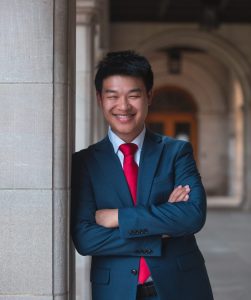
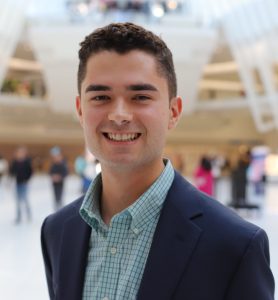
Emma:
Amazing, thank you. Congratulations on the graduate degree! I agree, by the way, that I think OutVote, just looking at what you’ve been doing, seems like a really well-structured project to keep you guys grounded and in touch with the community. That gets really hard – the more money you make in nonprofits, the harder it is to stay in touch with the community. So that’s very cognizant of you guys.
You touched on this a little bit in the first answer, but why are the struggles of the LGBTQIA+ community important to each of you?
Ranen:
Isaac, do you wanna go first?
Isaac:
Sure. Speaking for myself, I know it’s personal. Being a queer student growing up in Texas was my first exposure to the impact of negative LGBTQ policies.
We know that in 2023, over 530 anti-LGBTQ policies were enacted in legislatures across the country, including in places like Texas and across the South. I think it was that personal experience, growing up in a state that had book ban bills and was passing policies restricting transgender students’ access to restrooms. Just the rhetoric of that and growing up around that rhetoric, I think, was my personal reason for wanting to pursue this work in a more professional capacity.
Ranen:
I would say that growing up in New Jersey, it’s a much bluer state, but I still got to recognize the ways that cultural stigma and social harassment and bullying would impact LGBTQIA folks in the ways that queerness was talked about in school.
Even in a more friendly legislative and governance environment, I still felt constantly scrutinized and profiled because of what I looked like, how I talked. That was one of the reasons why I became committed to advocating on behalf of the LGBTQ community and making sure that my own lived experiences became a foundation for this advocacy work.
When I got to Missouri for college at WashU, I got to see how homophobia and transphobia translated into policy on our state level. We have a very conservative state legislature. We were constantly being bombarded with horrible anti-LGBTQ legislation. My senior year, the Attorney General passed a policy that would restrict life-saving, gender-affirming healthcare to Missourians who are trans.
It was seeing policies like that that reaffirmed my commitment to making sure that this advocacy is something that I do throughout my life, to make sure that our community is being protected at every single level.
The first major and substantive advocacy I got to do was during my sophomore year with the ACLU of Missouri: we worked on a campaign to decriminalize HIV in the state of Missouri. This is part of a broader series of laws across the country where, at the peak of the HIV/AIDS epidemic, we saw a lot of state legislatures pass anti-LGBTQ HIV criminalization policies that would make it a criminal offense to have sex if you were HIV-positive. We’ve obviously had significant medical and scientific advances since then.
Getting to work on this issue in our state, but also getting to see the intersectional implications of legislation like HIV criminalization and how it disproportionately impacted Black and Brown LGBTQIA folks, really reaffirmed my commitment…
I’m not just doing this work in terms of LGBTQIA advocacy, but making sure that we’re grounding it in intersectionality – that we are focusing on people of color, people with disabilities, women, gender expansive and transgender folks. That’s how we build a movement that is durable, that is meaningful and intersectional, that is inclusive of people of all backgrounds. That’s what Isaac and I are trying to do with OutVote.
Find more definitions in the “It Gets Better Glossary”.
Emma:
That’s incredible. Thank you for that answer.
Again, you touched on this a little bit – in your guys’ opinion, what are the unique challenges that the LGBTQIA+ community faces when it comes to representation? You’ve already cited the hateful legislation, profiling, the transphobia and homophobia ingrained in our system. What are some other challenges that you find the LGBTQIA+ community faces in getting adequate representation?
Ranen:
Yeah, that’s a great question. LGBTQIA folks are still underrepresented in our government. A big issue is accessing the funds and connections that we need in order to run for office, but also achieve higher positions of leadership and power in society, requires us to have networks and a pipeline to build leadership and a bench of people who are able to move up those ranks.
A part of our work with OutVote and building a fellowship cohort is leadership development with young LGBTQIA folks to make sure that we know how to organize our communities, how to talk to our communities, and preparing young people to one day run for office – whether it be running for student government on their local campus, or running for city council, running for state legislature, running for Congress.
We are really excited to be partnering with organizations like the Human Rights Campaign, the Victory Institute, and a variety of other national organizations that are really committed to making sure that we’re elevating LGBTQIA voices at all parts of our society.
It’s really important for us that Outvote is filling a niche where we are supplementing the work that other LGBTQIA organizations are already doing, instead of trying to step on toes or replicating work that’s already being done.
In terms of voting and democratic participation, we know that the LGBTQIA community faces unique barriers to being able to access the ballot box in the first place. Transgender Americans who change their names oftentimes are denied the access to vote because their name on their voter registration is not in alignment with their chosen name. This is a really big problem, it prevents people from being able to vote.

We also know that there are disproportionate levels of LGBTQIA homelessness in our community. In states that require voter ID to vote, this can make it challenging for people to receive that ID in the mail if you don’t have a mailbox or a PO box that you’re able to access that information.
At the same time, [it’s] the same barriers that impact all Americans: apathy, having to work and not being able to make it to the ballot box, having logistical challenges to access a polling place (because in some states it’s hours away for certain voters to be able to access a voting place). These are structural barriers that we also want to address and make sure that we’re tackling on behalf of our community and making sure that LGBTQIA voices are centered in that decision making.
We envision a future in which we don’t just have representation in our government for LGBTQIA folks, but where we have representation for LGBTQIA folks in all sects of our society – in our media, our corporations, our nonprofit organizations, our schools – but also making sure that we have representation that reflects the diversity of the entirety of the United States: women, people of color, LGBTQIA folks, people with disabilities…
One of the reasons why we’re excited to be working specifically with the LGBTQIA community is because we know that LGBTQIA voters have a higher propensity to vote for candidates who aren’t just LGBTQIA, but also candidates who are women, who are people of color, who are disabled… Making sure that we are bringing out voters who have a propensity to diversify our country is a really important part of this work and one of the reasons why we get up and do it every day.
Isaac:
Ranen said it best, <laugh> nothing to add.
Emma:
Awesome. Thank you… I didn’t even think about, if trans people changed their name, then they can be denied access to voting. That’s ridiculous.
So now’s the start of the big question. What is OutVote? What are your priorities and how does OutVote work to achieve them?
Isaac:
 Yeah, happy to take this. So, OutVote came from the idea that it’s critically important for us as LGBTQ young people to engage our community in building a sustaining culture of civic engagement that continues not just through the 2024 election cycle, but beyond.
Yeah, happy to take this. So, OutVote came from the idea that it’s critically important for us as LGBTQ young people to engage our community in building a sustaining culture of civic engagement that continues not just through the 2024 election cycle, but beyond.
When LGBTQ people vote, it’s a form of building power and electing individuals that reflect the diversity of our nation. So Ranen and I, given our background in political organizing and our interest in electoral politics and policy, felt that we had this unique opportunity… to pursue a project that would build that culture that we believe is lacking in Gen Z and LGBTQ young people today. That’s the big picture of where OutVote comes from.
What we believe our theory of change has manifested [as] in this election cycle is our flagship fellowship program that encompasses hiring, at this point, 12 organizers in two key battleground states – Arizona and Pennsylvania – to organize their LGBTQ community members on the ground.
I think Ranen touched on this previously, but [we’re] building collective power through the empowerment of young organizers to invest in their own communities through financial support, skill building, resources, and the connections we’re able to provide to build that culture of civic engagement.
And today actually marks the launch of our ambassador program! It will incorporate a much larger swath of volunteers across the country, not just limited to these two states. [They] can do organizing online/in person and apply for microgrants from OutVote for the purpose of building that culture of civic engagement in their own communities… and a network that can remain engaged and involved in LGBTQ electoral politics and organizing in this election cycle and beyond. Ranen, feel free to take any gaps that I missed in that explanation.
Ranen:
No, I think you did perfect.
Emma:
The paid fellowship idea is amazing, and it’s difficult to plan that as a paid opportunity… If I’m layering too many questions, let me know, but where’d you get that idea and how did you build the bandwidth to be able to make this a paid fellowship program?
Ranen:
Well, that’s a great question. Isaac, do you wanna start or do you want me to start <laugh>?
Isaac:
Go for it. Go for it.
Ranen:
Okay, awesome. We love to tell this story, because Isaac and I have been friends for years. We met for the first time in-person at an LGBTQ conference called Creating Change. We got to spend last summer together in DC. Isaac was at the White House, I was on the Hill, and one night we were talking about the future of our country, what we wanted to do in our lifetimes.
We talked about how 2024 felt like such a big year. It was such an important election for the future of our community, and we didn’t really know what to do.
Isaac said, “I have this great idea, I think that we should create an organization called ‘OutVote’ maybe in, like, 10 years! “
And I was like, “That’s a great idea, why don’t we do it… tomorrow??”
Isaac was like, “…What do you mean?”; and I was like, “We should do it this cycle. We should get started now.”
That’s what lit the fire. We were really, really excited to move forward with this idea.
We did a field scan over the course of three months, then we started building out a team of people to build the infrastructure, the programming. We met every single week for five months, and then when we launched OutVote, we had a base of supporters who we had already spoken with and consulted who were willing to support us financially and with mentorship and guidance. That was really how we were able to fundraise the amount of money that we’ve gotten.
I need to give the flowers where they’re due: to Isaac. Isaac is the person who does a majority of our fundraising to make sure that we’re able to reach grants, foundations, but also individual donors in the LGBTQIA community who would be interested in supporting us. That’s the reason that we have the financial support we need in order to fund our fellows this cycle, and to fund our incredible new ambassador program.
Isaac:
Yeah, and the only thing I’ll add – Ranen, you did a great job explaining the foundation of this – I will speak specifically to the fellowship program.
I know myself and Ranen have both been a part of multiple programs where young people receive training, support, and financial resources. We modeled the OutVote Fellowship on our prior experience as young people participating in fellowship programs where we felt empowered to do that organizing and mobilization in our own communities. So, it comes from this personal experience of benefiting from community building through a fellowship network of other young people with similar interests; and the belief that investment in young people is investment in the future and in our community.
That underscores the significance of this really comprehensive fellowship program that is so much more than just paying organizers, but also building and training and creating a lasting network that can extend beyond just the 2024 election.
OutVote’s fellows, building power in their communities of Arizona and Pennsylvania!
Emma:
That’s incredible. That’s exactly what we need. Going off of that, why did you choose Arizona and Pennsylvania specifically?
Ranen:
We wanted to make sure that the states we were working in were not only states that were going to be pretty substantial for the presidential election in 2024, but also states that had important state-level and local elections. We know that in Arizona there’s going to be an abortion referendum on the ballot, and that’s something that we think young people will be very energized by. It gives us very interesting terrain to work on.
But we also wanted to find states in which young LGBTQIA people represented the diversity of the LGBTQIA community, and also had robust populations of LGBTQIA folks that we could mobilize and provide information to throughout this election cycle.
In Arizona, for example, we estimate that there are around 50,000 LGBTQIA college students that… is a potential population for us to reach. That is almost 500% the margin of victory in the 2020 presidential election.
In Pennsylvania, the roughly 54,000 LGBTQIA college students that we were able to identify constitute roughly 67% of the margin of victory in 2020 for the presidential election. These are states that are very competitive, which people are really interested in investing in, states that have robust and diverse LGBTQIA communities, and where we feel that we can make an impact on college campuses by dispatching fellows.
Obviously, it’s our inaugural year, so we are not trying to pretend that we’re going to reach every single voter in these states. Our goal is to build a foundation and make sure that we’re building lasting relationships that will last us year after year after year, so that we are connecting with the LGBTQIA communities on college campuses and with organizers, and we’re also able to follow those organizers after they graduate from college and go out into the world and hopefully become leaders in their own fields.
Isaac:
Yep. I don’t have anything else to add.
Emma:
Great, thank you. You were saying this before about [how] the LGBTQIA+ community encompasses such a diverse range of identities. How do you make sure you’re investing time to all of those identities equally and meeting them where they need to be met?
Ranen:
Yeah, that’s a great question. Our community is incredibly diverse, like you mentioned – “LGBTQIA” is not a unidimensional identity, but rather a beautiful conglomerate of a lot of different identities. LGBTQIA issues aren’t just gay marriage and trans participation in sports, or the access for trans students to get into the restrooms that align with their gender identity.
[They] are also questions of housing security, food insecurity; questions of voting and democracy, questions of minimum wage and labor, questions of police brutality, questions of mass incarceration. Recognizing that all of these are LGBTQIA issues is the foundation and the framework from which we are beginning this work.
We seek to serve these communities by making sure both our ambassador cohort that we’re recruiting [and] the fellows that we have selected represent that diversity within our communities. We have fellows who speak a variety of different languages. We have fellows from different parts of Arizona and Pennsylvania. We have partners across both states in a lot of different areas, whether it be groups like the League of Women Voters or LGBTQ community centers.
We are trying to make sure that we’re also reaching student organizations, not just groups like a PRIDE Alliance or an LGBTQ network, but groups like the Black Students Alliance, the Latino Student Alliance, the Asian Student Council. Recognizing that LGBTQIA issues are not siloed into a singular organization, but that LGBTQIA folks are everywhere on a college campus is a really important foundation for us in doing this work.
When we are investing in different communities, we explicitly target and recruit at places like HBCUs and minority-serving institutions. We made sure that we were able to reach out to students from a lot of different backgrounds: community colleges and public universities and private colleges and small liberal arts colleges.
We recognize that there are LGBTQIA folks all across both of these states. We want to make sure that our reach is as broad as possible, and that we are focused on messaging around inclusivity as well, that we make this a centerpiece of our work, not just an afterthought.
Emma:
Excellent. Isaac, did you wanna add anything or did Ranen cover it?
Isaac:
Ranen covered it perfectly.
Emma:
Okay <laugh>. Have you been able to get into contact with any Indigenous groups in Arizona, Pennsylvania, or anywhere?
Ranen:
We’re definitely doing outreach, but we don’t have a fellow on a [Tribal-serving institution] yet. But we are looking to make sure that we have ambassadors and other students who are going to be organizing at TSIs as well.
I previously worked with a group called Campus Pride, which is a national LGBTQ collegiate organization. I was a summer intern for them, and one of my projects was on reaching out to tribal-serving institutions. So it is really important to us to make sure that TSIs are also going to be included and that we’re going to be involving Indigenous communities in our outreach work and in our voter mobilization work.
Emma:
Amazing, thanks. Next question – these are all about what your strategies are. I saw on your website that you do a lot of voter registration drives… Do you find them to be productive and successful?
Ranen:
There’s a lot of ways that we’ll be working to mobilize and reach out to voters. Voter registration drives are one tool in a broad toolkit that we are providing to our fellows, but it is one of the most remarkably effective ways that people have been able to reach populations, especially if you are meeting people where they’re at. So, instead of hosting a voter registration drive, let’s say, at a student center, going into a Student Center for Diversity and Inclusion, or going to an LGBTQ student group event, or going to a drag show. These are places where we think we’ve historically not seen a lot of engagement with the LGBTQIA community and where people aren’t going to try and reach folks to register them to vote.
We know that there is a lot of energy and excitement in the 2024 election. For example, the most recent polling by GLAAD indicates that over 90% of LGBTQIA folks are “somewhat excited” or “very excited” to vote.
We think it’s really important to make sure that we’re reaching communities where they’re at, because oftentimes it’s not even that people have not registered to vote, but for college students [it’s], “Oh, I have not changed my registration from my home state to my current state, thank you for giving us this voter registration form so that I’m able to do that and vote in Pennsylvania or Arizona”. It’s about making sure that people who are interested in voting are able to check and verify that they are registered to vote, because we see voter suppression tactics like purging of the polls. Having people on the ground and reaching folks is the best way to address and raise awareness about this.
And when we are meeting people where they’re at through fellows and ambassadors who are members of these communities, we aren’t going to be trying to swoop into communities that we have no connection to, but rather sending in folks who already have deep connections within these communities to do relational organizing. We know this is the most effective way of turning people out to vote, of having meaningful dialogue and conversations and changing people’s minds in a way that we’ve seen with policies and practices like deep canvassing. The research has shown us [deep canvassing] is the most effective way to change people’s minds on any issue, whether it be a political issue like gay marriage or trans rights, or if it’s an electoral strategy to turn people out to vote.
Isaac:
Yes. Ranen covered it perfectly again <laugh>.
Emma:
I love how comprehensive you guys are about how you’re strategizing with OutVote, how thoughtful you’re being with, like Ranen, you just said, not swooping into a community and just doing things, but making connections so that it’s a community-building exercise that can last a long time.
~~~~~~~~~~~~~~~~~~~~~~~~~~~~~~~~~~~~~~~~~~~~~~~~~~~~~~
Thanks for reading! Check back for Part 2 on September 30!
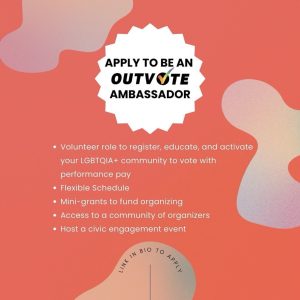
~





